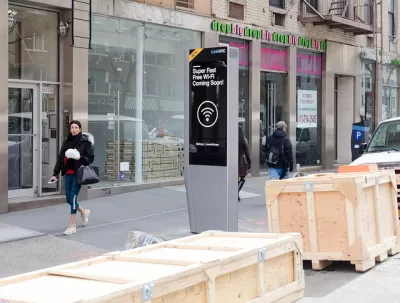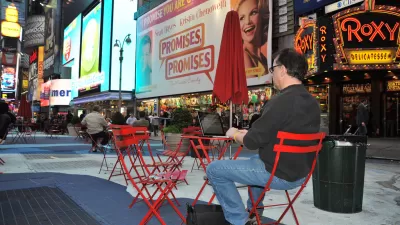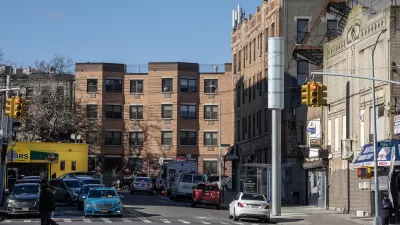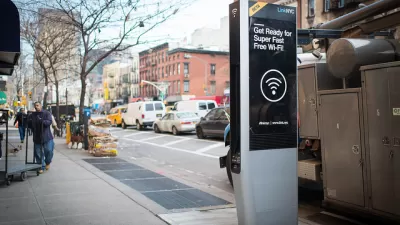A cynical person might say that this is why we can't have nice things.

According to an article by Patrick McGeehan LinkNYC network will shut off the Internet browsers on the Wi-Fi kiosks located around the city.
The Wi-Fi kiosks were designed to replace phone booths and allow users to consult maps, maybe check the weather or charge their phones. But they have also attracted people who linger for hours, sometimes drinking and doing drugs and, sometimes, boldly watching pornography on the sidewalks.
It was only February that the LinkNYC kiosks were announced to great fanfare, "designed to replace more than 7,500 public pay phones and bring free Wi-Fi and phone service to every neighborhood." In reality, the kiosks created more problems than benefits. Turning off the browsing function on the 400 kisoks already installed in Manhattan is considered a temporary solution. In the meantime, users can still access fast Wi-Fi, Google Maps, free phone calls, and charging of electronic devices.
FULL STORY: Free Wi-Fi Kiosks Were to Aid New Yorkers. But There’s an Unsavory Side.

Maui's Vacation Rental Debate Turns Ugly
Verbal attacks, misinformation campaigns and fistfights plague a high-stakes debate to convert thousands of vacation rentals into long-term housing.

Planetizen Federal Action Tracker
A weekly monitor of how Trump’s orders and actions are impacting planners and planning in America.

San Francisco Suspends Traffic Calming Amidst Record Deaths
Citing “a challenging fiscal landscape,” the city will cease the program on the heels of 42 traffic deaths, including 24 pedestrians.

Adaptive Reuse Will Create Housing in a Suburban Texas Strip Mall
A developer is reimagining a strip mall property as a mixed-use complex with housing and retail.

Study: Anti-Homelessness Laws Don’t Work
Research shows that punitive measures that criminalized unhoused people don’t help reduce homelessness.

In U.S., Urban Gondolas Face Uphill Battle
Cities in Latin America and Europe have embraced aerial transitways — AKA gondolas — as sustainable, convenient urban transport, especially in tricky geographies. American cities have yet to catch up.
Urban Design for Planners 1: Software Tools
This six-course series explores essential urban design concepts using open source software and equips planners with the tools they need to participate fully in the urban design process.
Planning for Universal Design
Learn the tools for implementing Universal Design in planning regulations.
Heyer Gruel & Associates PA
JM Goldson LLC
Custer County Colorado
City of Camden Redevelopment Agency
City of Astoria
Transportation Research & Education Center (TREC) at Portland State University
Jefferson Parish Government
Camden Redevelopment Agency
City of Claremont





























